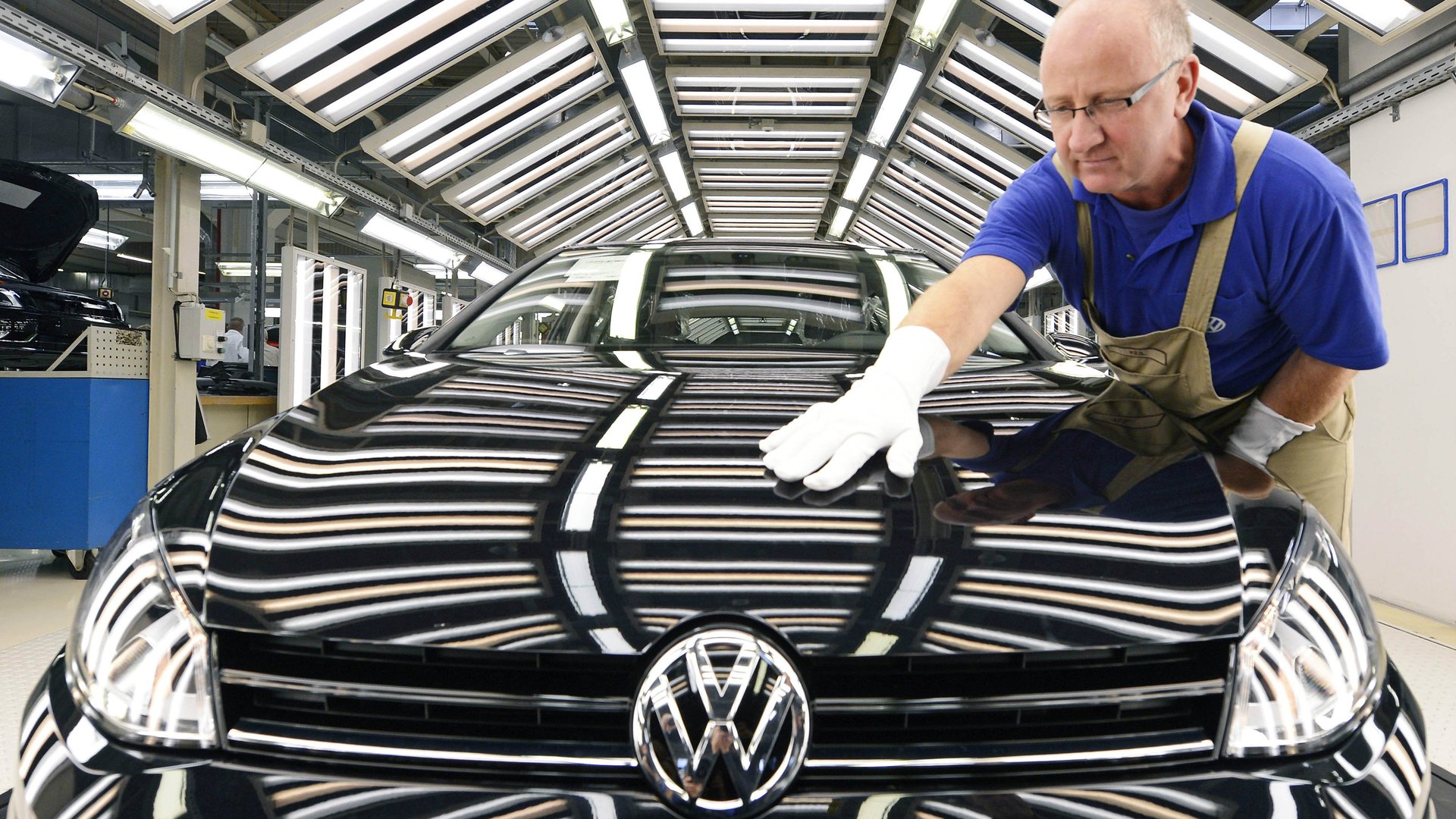Volkswagen’s latest admission suggests an entirely different kind of infraction, with an extra €2 billion price tag
Volkswagen has disclosed an entirely new front in its emissions scandal, suggesting that the company misstated carbon dioxide (CO2) emissions for at least 800,000 vehicles, in addition to the cheating on nitrogen dioxide tests that has affected millions more. The German auto giant said the cost of the newly disclosed infraction could reach €2 billion ($2.2 billion), on top of the $7.3 billion it has already set aside.


Volkswagen has disclosed an entirely new front in its emissions scandal, suggesting that the company misstated carbon dioxide (CO2) emissions for at least 800,000 vehicles, in addition to the cheating on nitrogen dioxide tests that has affected millions more. The German auto giant said the cost of the newly disclosed infraction could reach €2 billion ($2.2 billion), on top of the $7.3 billion it has already set aside.
The new disclosure also includes non-diesel, gasoline-powered vehicles for the first time.
VW’s announcement was thin on details:
During the course of internal investigations, unexplained inconsistencies were found when determining Type Approval CO2 levels. Based on present knowledge around 800,000 vehicles from the Volkswagen Group are affected.
In September, the German company, cornered by mounting evidence compiled by US regulators and others, admitted that it had deliberately programmed some 11 million cars to deceive equipment that monitors nitrogen oxide emissions. On Nov. 2, the US Environmental Protection Agency (EPA) said it had new information that 10,000 automobiles sold by two other VW-owned brands—Porsche and Audi—also included the software, an accusation that VW denied.
In the latest case, VW told the Financial Times that most but not all of the vehicles involved had diesel engines, and that they all have 1.4 liter engines, including VW Polos and Golfs, along with some Audis, Seats and Skodas.
Though details are few, the case is reminiscent of a 2014 EPA case against Kia Motors and Hyundai. The Korean carmakers had to pay $300 million for overstating the gas mileage and understating the CO2 emissions of 1.2 million cars. In the EPA’s eyes, mileage is inherently related to CO2 emissions, and in order to reduce emissions of the greenhouse gas, the regulator is systematically increasing the minimum mileage per gallon that automakers must achieve.
Kia and Hyundai described their infraction as ”procedural errors.” The VW statement cited “unexplained inconsistencies” in the CO2 emissions of some 800,000 vehicles.